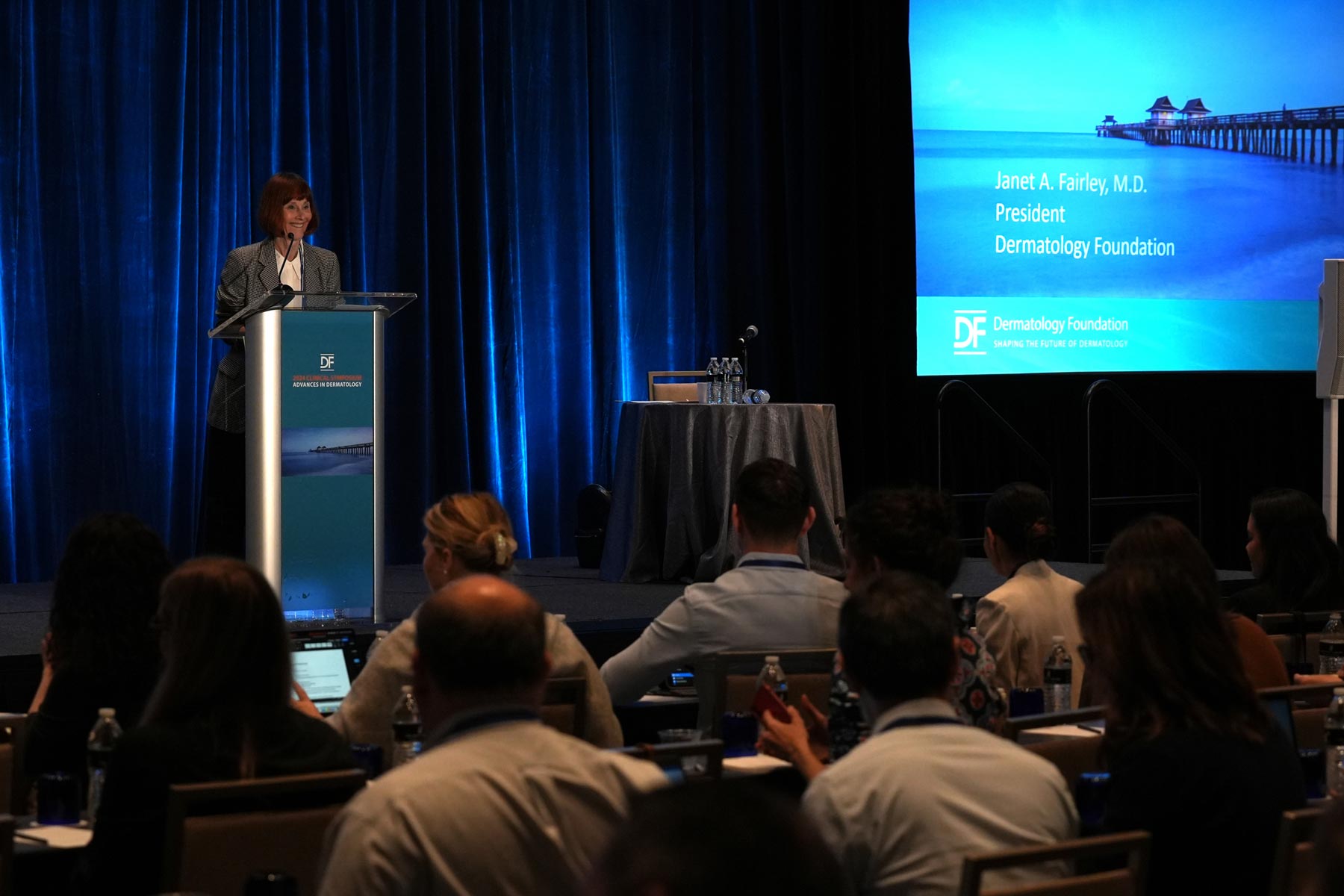In the 1950s, Dr. Stephen Rothman was among those who pioneered the idea of investigative dermatology, believing physicians should apply basic scientific research to the practice of our specialty. Dermatologists embraced the role of science in dermatology, including those who created the Dermatology Foundation in 1964. They based the Foundation on a simple idea: that physicians could and should work together to ensure better treatments for our patients. That idea flourished, thanks to the generous contributions from physician members, specialty societies, sponsors, and our wide-ranging Research Award Program.
For six decades the Dermatology Foundation has launched the careers of promising investigators and their basic, clinical, and translational research. And it has paid off. Since those early days, dermatology has undergone a rapid evolution in the understanding of skin disease, including the molecular basis of many disorders, and ways to manipulate the immune system or genetics to offer more effective treatments. Receiving a Foundation award is not only exciting for a recipient, but it also sends a strong signal that their research is compelling, and their investigative career is worthy of investment.
Initially, the Foundation focused its funding on bench-based research. Over the decades, we have broadened our offering to include a greater variety of mid-career, public health, and diversity research awards. Our Research Award Program has validated their ideas and jump-started the early careers of many researchers. It has provided funding when other sources were limited, making it easier for investigators to receive subsequent NIH grants. In 2024, we awarded $2.97 million in research funding to 61 physician-scientists and researchers with compelling ideas, bringing our overall investment in our specialty to nearly $89 million. The Dermatology Foundation has provided early research support to about 1,400 individuals over the years—people who have helped advance our specialty across the board —through science, clinical research, or leadership in dermatology and other medical organizations.
We are not just simply backing the discovery of more effective treatments for skin diseases; we are cultivating the careers of tomorrow’s leaders in dermatology. The people we have funded make up a who’s who of dermatology in our country. A large number of today’s experts in our field have received financial assistance from the Foundation during the early stages of their careers. Those who receive a research award in medical dermatology may go on to discover a new treatment or improve our understanding of the pathophysiology of an under-treated skin disease like hidradenitis suppurativa and mentor others.
If you have made investigative dermatology your career, you know how satisfying it is to uncover something new that adds to the base of our scientific knowledge. Often, however, investigators struggle at the mid-point of their careers. The research path is incredibly competitive and can be difficult. They have promising data and are trying to compete with large labs and well-established investigators for funding. That mid-career point can be discouraging; it is an inflection point when a little extra encouragement spurs them on to do remarkable things.
That is why we have added mid-career support to our Research Award Program in recent years. In the coming months, we will be featuring the work of three physician-scientists who received mid-career awards from the Foundation. Drs. John Harris (vitiligo), Aimee Payne (pemphigus), and Michael Rosenblum (skin immunology) have demonstrated phenomenal results from their mid-career awards.
While the DF has enabled the specialty to make considerable progress, challenges in funding future discovery remain. While there is much more interest in dermatology than there was in 1964—greater public awareness confirms this—we are still a small specialty, and funding for today’s researchers must come from several sources.

Dr. Janet Fairley (center) with Clinical Symposium attendees at the closing reception.
Historically, member contributions to our Research Award Program made it possible to fund investigative dermatologists at crucial moments in their journeys, helping them build distinguished careers. Donations in recent years from corporate supporters, such as Bristol Myers Squibb, Sanofi and Regeneron, among others, have also helped us enrich our awards program so we can offer greater funding to mid-career researchers.
Succeeding in investigative dermatology is not getting any easier, and support from organizations like the Dermatology Foundation will continue to be critical. As Foundation members, we each have a responsibility to our colleagues, just as our predecessors and mentors supported us. I cannot count the number of times a physician-scientist has said to me, “If it weren’t for my mentors, I probably wouldn’t be doing what I do”. And it is the Dermatology Foundation that enables them to get started and stay on this career path.
The Foundation is an organization for dermatologists, led by dermatologists. I became a member soon after I completed my fellowship in 1984 and have been an ardent advocate and volunteer ever since. It has been a way for me to give back to the specialty that has given me so much.
As we begin the year of our 60th anniversary, I encourage you to join me and support the Foundation that has so generously nurtured us all. Discovery requires continuous investment. If we do not continue to support the advancement of the specialty, who will?
Invest in the future of dermatology!


